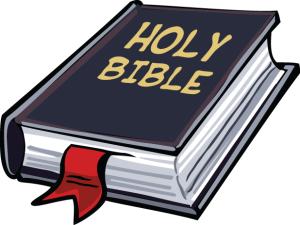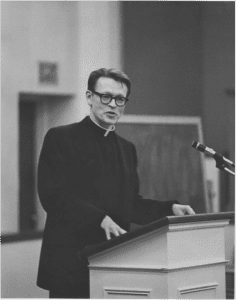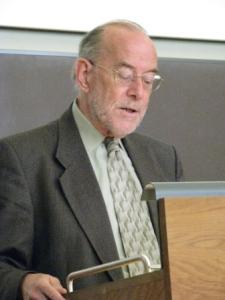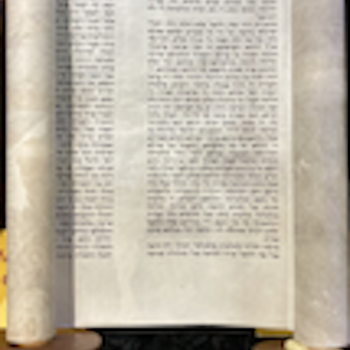 October is National Book Month in the USA. It is a time to honor the best books and authors. If you want to get smart, read books. But it will help more if you don’t just read fiction books. How so? Publishers that make non-fiction books get experts to write them because it’s a business, and if they just get anybody who is not an expert to write on some topic, that publisher likely will soon go bankrupt. So, you’ll get smarter by reading books written by authorities in their fields.
October is National Book Month in the USA. It is a time to honor the best books and authors. If you want to get smart, read books. But it will help more if you don’t just read fiction books. How so? Publishers that make non-fiction books get experts to write them because it’s a business, and if they just get anybody who is not an expert to write on some topic, that publisher likely will soon go bankrupt. So, you’ll get smarter by reading books written by authorities in their fields.
I read lots of books. Most of them are centered on the most popular book in the history of the world–the Bible. So, most of the books I read are about theology and the Bible because I am an author who writes books, and I write mostly on biblical studies.
Yeah, I don’t have a PhD, so I don’t qualify as a recognized expert. However, I’ve been a serious student of the Bible and scholars who write about the Bible since my teens. I believe I could have gotten a PhD and been a professor, but that was not the path I chose since I was a pro golfer on the PGA Tour. In my senior year of college, my school honored me as the athlete who excelled most in both sport and academic studies that past year.
I’ve been in Christian ministry much of my life. For example, I co-founded and led the PGA Tour Bible Study. So, I was one of the more significant pro athletes in the last half of the 20th century who brought Christianity to U.S. pro sports. Still, that doesn’t qualify to be a scholar. Some of my Bible scholar friends designate me a “lay scholar.”
My favorite authors are certain Bible scholars. Most of them write Bible commentaries and other theological books or books on biblical studies. There is a difference. My two favorite are American Raymond E. Brown and Englishman James D. G. Dunn.
 Brown was Roman Catholic and regarded by many of his peers as the preeminent New Testament scholar in the world during the second half of the twentieth century. Some of his books in my 2,500-volume, personal library include The Birth of the Messiah, The Death of the Messiah (2 vols.), Jesus God and Man, An Introduction to New Testament Christology, and The Gospel According to John (2 vols.). Most of these books are large, so I haven’t read all of the material in them. Some of them I regard as resource books to refer to for certain questions. Brown was known for his conciliatory spirit, thoroughness, and interaction with other scholars in his writings.
Brown was Roman Catholic and regarded by many of his peers as the preeminent New Testament scholar in the world during the second half of the twentieth century. Some of his books in my 2,500-volume, personal library include The Birth of the Messiah, The Death of the Messiah (2 vols.), Jesus God and Man, An Introduction to New Testament Christology, and The Gospel According to John (2 vols.). Most of these books are large, so I haven’t read all of the material in them. Some of them I regard as resource books to refer to for certain questions. Brown was known for his conciliatory spirit, thoroughness, and interaction with other scholars in his writings.
The Society of Biblical Literature is the largest Bible scholar association in the world, with 8,000+ members. At the suggestion of my friend Dr. Scot McKnight, I joined it in 1999. I told Scot I was hesitant to do so, since I didn’t have a PhD. But he said the association did have some members without a PhD and that my published books would qualify me to join, which I did in 1999.
The highlight for many members of SBL is to attend its Annual Meeting held in conjunction with the American Academy of Religion. It is held in a different, large city in North America every year the weekend before Thanksgiving. Scholars attend from all over the world. The top scholars in the U.S. often attend it. It is connected to book publishing since there is a large book hall where all the main religious book publishers show their latest books, and we members can purchase them at usually a 50% discount.
At my first SBL Annual Meeting, in 1999, I roomed with Dr. Scot McKnight. Being such a friendly and gregarious guy, he knows just about everybody. So, he asked me what Bible scholar I would like to meet at the Annual Meeting more than any other. I immediately responded, “Raymond E. Brown.” I was disappointed when he told me that Brown had just died the year before.
At that time, Scot was teaching at North Park University. He asked me if I’d like to be a donor of a two-day Bible lecture series at North Park that he had conceived of in which he would get a renowned scholar as the guest speaker. Since I was still competing on the PGA Tour’s Senior Tour, and doing well financially, I said “yes.” The school then said they wanted it to be called the Kermit Zarley Lectures, to which I agreed.
 The first lectures were held in 2000. Scot’s PhD supervisor at the University of Nottingham, in England, was James D. G. Dunn, whom his friends called “Jimmy.” So, Scot got Dunn to be our first guest speaker, and I attended. It was such a delight for me to meet Jimmy Dunn and get to know him. Scot had scheduled the lectures right before the beginning of the SBL Annual Meeting, which would help him get distinguished speakers for the lectures series.
The first lectures were held in 2000. Scot’s PhD supervisor at the University of Nottingham, in England, was James D. G. Dunn, whom his friends called “Jimmy.” So, Scot got Dunn to be our first guest speaker, and I attended. It was such a delight for me to meet Jimmy Dunn and get to know him. Scot had scheduled the lectures right before the beginning of the SBL Annual Meeting, which would help him get distinguished speakers for the lectures series.
So, after those lectures, I had the privilege of rooming together at the SBL Annual Meeting with both McKnight and Dunn. What a treat to be those gentlemen, enjoy the friendship, and learn from them. Two years after that, I was invited and attended the “Dunn dinner” at SBL’s Annual Meeting, which was a one-night gathering of his PhD students at a nice restaurant. That was just another blessing for me. Dunn was affiliated with the Methodist Church, and I have a Methodist/Nazarene background.
Jimmy Dunn died two years ago. It saddened his friends greatly, including me. I still attend SBL’s Annual Meeting, and I sure do miss seeing Professor Dunn there. He was such a warm person and delight to be with and talk to. And I loved asking Jimmy theological and biblical questions because he was easy to talk to and so knowledgeable.
So, for the past twenty years, Raymon E. Brown and James D. G. Dunn have been my favorite New Testament scholars. Here are Dunn’s books that I have in my library: Baptism in the Holy Spirit (his dissertation), Jesus and the Spirit, Christology in the Making, Unity and Diversity in the New Testament, Dunn’s magnum opus is his 3,500+ pages, three-volume, Christianity in the Making: Jesus Remembered (vol. 1), Beginning from Jerusalem (vol. 2), and Neither Jew Nor Greek: A Contested Identity (vol. 3). Dunn was recognized as an authority on Christology and the apostle Paul with his The Theology of Paul the Apostle. and Jesus, Paul, and the Gospels. Also in my library are smaller Dunn books such as A New Perspective on Jesus, The Evidence for Jesus, New Testament Theology, and Did the First Christians Worship Jesus?.
In this last book, Did the First Christians Worship Jesus?, which I think was Dunn’s next to last written, he comes perilously close to saying Jesus was not divine, which is what I believe. I asked Jimmy about this back in 2000. He said there was one biblical text that he was sure identified Jesus as “God,” and that was John 1.14 (“the Word became flesh”) compared with 1.1c (“and the Word was God”). So, he didn’t regard Thomas’ Confession in John 20.28 (“My Lord and my God”) as a definite support.
My association with Scot McKnight, SBL, and many of its member scholars has been an answer to prayer. Right before I met Scot, in 1992, I had been praying that God would give me one or friendships with Bible scholars, partly so that it would help in knowing the Bible better since I intended to write books about it. God answered that prayer way beyond anything I imagined. Thank you God, and thank you Scot.
BTW, I’ll put in a plug here for myself by saying that Scot McKnight endorsed my book, The Third Day Bible Code (2006), and his endorsement is on that book’s back cover. It says, “Kermit Zarley has studied the Bible prophetically more than any person I’ve met, and I include academics and pastors.”













